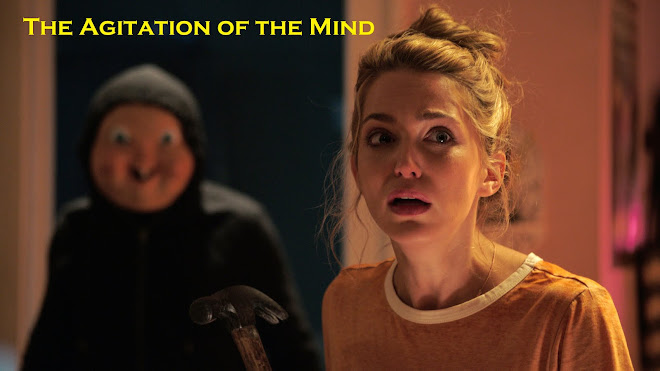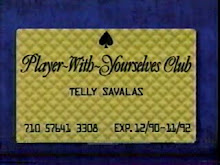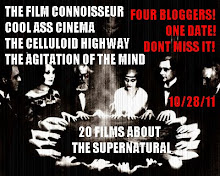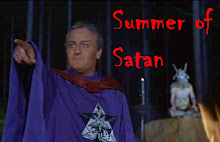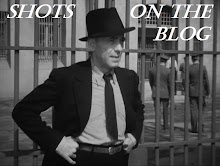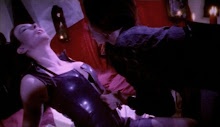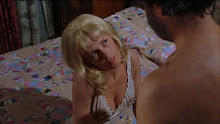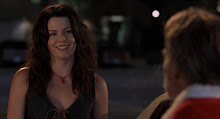Sunday, January 14, 2018
Three Billboards Outside Ebbing, Missouri
Having already chalked up an impressive career as a playwright, Martin McDonagh made his directorial debut in 2006 with Oscar-winning short film ‘Six Shooter’, the promise of which he made good on in memorable style with ‘In Bruges’ in 2009. His sophomore feature film ‘Seven Psychopaths’ opened to mixed reviews in 2013 – admission: never seen it – and, after another four year gap, he returns with ‘Three Billboards Outside Ebbing, Missouri’.
Now, I fucking bloody loved ‘In Bruges’ (Agitation review here) and consider it a pitch perfect black comedy. But here’s the thing: watch the deleted scenes on the DVD and it comes abundantly clear that had they made the final cut, ‘In Bruges’ wouldn’t have been anywhere near pitch perfect. It would, tonally, have been all over the fucking place.
My guess is that either: (a) McDonagh had an on-the-ball producer on ‘In Bruges’ who knew exactly what did and didn’t work and instructed him to make cuts accordingly, or (b) unanimous test audience responses led to the same outcome.
I can’t claim that ‘Seven Psychopaths’ bolsters or diminishes the observation, not having seen it, but I would hazard a guess that no-one was around on ‘Three Billboards’ to bring to McDonagh’s attention the film’s really jarring tonal shifts. A blander, more boilerplate piece of work might have been sunk by them, but fortunately ‘Three Billboards’ has a hell of a lot to commend it despite its flaws.
Narratively, the first thing it put me in mind of was that Tolstoy novella about the forged promissory note, and how its passage around a provincial town negatively affects everyone involved. Just substitute raped and murdered teenager for forged promissory note and Ebbing, Missouri for provincial Russian town.
The victim of this heinous crime is Angela Hayes (Kathryn Newton). Seven months have passed since the atrocity and the local police department have given up on the case. Angela’s mother Mildred (Frances McDormand) responds by renting three billboards on the backwoods road where Angela was assaulted and killed – she raises the money by selling off a tractor/trailer belonging to her ex-husband Charlie (John Hawkes), currently shacked up with his 19-year-old girlfriend Penelope (Samara Weaving) – and uses them to unsolved-crime-shame Ebbing sheriff Chief Willoughby (a never-better Woody Harrelson).
To put it mildly, Mildred stirs some shit. Or to put it another way, Mildred tears the bandage off Ebbing’s festering wound. Or to be it another way, if Lisbeth Salander in the novels by Stieg Larsson is the girl who kicked the hornets’ nest, then Mildred is the woman who smacked the hornets’ nest down to the ground, doused it in petrol, tossed a firecracker at it and shouted “yeah, bitch” as it went up in flames.
Mildred’s provocation has its most immediate effect on Willoughby, a man who has admitted that there’s little more he can do as regards Angela’s murder, and is also somewhat distracted by the requirements of setting his affairs in order on account of the fact that he’s dying of cancer. His terminal condition has an understandable knock-on effect on his younger wife Anne (Abbie Cornish: her best turn since ‘Bright Star’) and their two children.
Willoughby’s terminal condition doesn’t do much, either, for the equilibrium of his alcoholic short-fuse deputy Dixon (Sam Rockwell), a man-child in thrall to his obnoxiously racist mother. Unable to vent his frustrations elsewhere, Dixon targets local entrepreneur Red Welby (Caleb Landry Jones), owner of the advertising company who lease Mildred the billboards. In the broadest of strokes – broad to the point of cliché – McDonagh’s script establishes Dixon as the villain of the piece, as stupid as he is dangerous, only to flip everything on its head.
At any one time, and sometimes with the two or three minute passage of one single scene, ‘Three Billboards’ functions as a black comedy, a procedural, a melodrama, a cautionary tale as regards the exponential consequences of wrong things done for the right reason (airhead Penelope’s “anger begets anger” scene is both laugh-out-loud funny and the intellectual cornerstone of the movie), and an enquiry into the nature of responsibility, forgiveness and atonement.
Atonement is where the film scores its most palpable hits – far more effectively than McDonagh’s brother’s recent outing ‘Calvary’, which attempts a similar enquiry – with scenes between Dixon and Red, and Dixon and Mildred, communicating far more than the understated sketches that McDonagh is wise enough to be satisfied with rather than making some sweeping moral statement.
It’s not exactly front page news to declare than understatement, inference and ambiguity communicate the big themes more effectively than tub-thumping or polemics. But it’s surprising how many artists, of whatever discipline, still haven’t twigged to this. McDonagh fumbles the ball in enough places that an overall less interesting film wouldn’t have survived the uneven tonal shifts, the hackneyed characterisations and the bludgeoningly obvious narrative tropes.
That ‘Three Billboards’ just about dodges its myriad self-fired bullets owes to a first-rate cast who invest in their characters to the hilt, and to McDormand in particular who effortlessly clears the twenty-year hurdle of her achievement in ‘Fargo’ to deliver her definitive performance and bring to life a character for the ages.
Friday, January 12, 2018
All the Money in the World
Let’s be honest: whatever its merits or otherwise, ‘All the Money in the World’ will forever be remembered as the film where director Ridley Scott basically erased Kevin Spacey. With the actor in disgrace following sexual harassment allegations – and, worse, sexual harassment, in one case, of a minor – and the film only a month or so away from its release date, Scott recast Christopher Plummer in the role of John Paul Getty and reshot twenty-two scenes. It was originally announced that the affected cast had returned for the reshoots for free; as the film opened to lacklustre returns, it was revealed that Michelle Williams had basically got about $1000 in expenses while Mark Wahlberg had renegotiated his fee and pocketed an extra million and a half.
So: person originally playing venal human being gets axed from the film for being a venal human being himself; actor playing a negotiator profitably negotiates; actress playing impecunious character gets paid fuck all extra; and a film about the fallout of rampant greed inadvertently highlights the Hollywood glass ceiling while not actually raking in many spondoolies at the box office.
That sound you just heard was the irony-o-meter exploding.
One day there will be a book or a feature-length documentary about the making of ‘All the Money in the World’ and it will be infinitely more fascinating than the movie itself. Which isn’t to say that ‘All the Money in the World’ is necessarily bad – it’s often good and occasionally very good – but there’s a listlessness to some of its scenes and an inelegance in the way it all hangs together and I’m not convinced that either of those things are due to the reshoots and/or re-editing. In fact, in anything, the film probably got an upgrade by dint of Plummer’s involvement.
That Christopher Plummer came to the project at the eleventh hour, with presumably very little (if any) time to rehearse, and gave the nuanced and hypnotic performance that’s on display here – enigmatic, inscrutable, morally sinister and just that tiny bit charming – is astounding. He’s so good that I actually feel guilty for saying that he’s the second best thing about ‘All the Money in the World’.
The absolute best thing about the film – a standout and possibly definitive performance in a filmography unmarked by a single bad, lazy or indifferent turn – is Michelle Williams. Her portrayal of Gail Getty, a woman tainted by the Getty name on account of her failed marriage to JPG’s alcoholic and drug-addicted son, is what great screening acting is all about. The refusal to sublimate grief and uncertainty into obvious histrionics; the cynical wariness of the character, Williams effortlessly suggesting that Gail is, at heart, gloomily unsurprised by her son’s kidnap and her father-in-law’s stony indifference; the diction (she imparts entire layers of characterisation purely by the way she enunciates); the way she doesn’t so much play off the other cast members as absorb their presence – it’s something special and confirms Williams’s place in the top tier of American acting talent.
That’s the good stuff: Williams and Plummer. Plus some nice period recreation (apart from the awful monochrome prologue which comes off as a bad Antonioni homage) and occasionally eye-catching cinematography.
Unfortunately, much of the rest of it is a clusterfuck. David Scarpa’s script, from John Pearson’s book ‘Painfully Rich’, is all over the place and frequently struggles in terms of concept let alone execution. The opening twenty minutes are just plain terrible, with Scott’s direction seemingly as directionless as Scarpa’s screenplay. The kidnapping – while John Paul Getty III (Charlie Plummer) takes a walk through the seedy underside of Rome – lacks any tension or dramatic impact. The subsequent voice-over narration, by the kidnap victim, strikes a jarring note (he’s under lock and key for most of the rest of the running time: what is there for him to narrate?). Then there’s a series of flashbacks that aren’t so much nested as the nest falling out of the tree and disintegrating as it bounces off branch after branch – these are meant to (a) spell out the backstory of how Getty arrived at his riches and (b) establish the dynamic of Gail and her family. A fifteen second title crawl would have achieved the former and a half-minute exposition dump by Gail herself in an early scene covered the latter. As it is, the film flounders precisely at the point when it should be generating stomach-churning tension.
Nor does it help that Scarpa’s script wants to criticise that moral debilitation that results from the acquisition of obscene amounts of wealth, while Scott’s direction quite evidently has a massive hard-on for lifestyle porn.
Once Scott remembers that he’s making a kidnapping thriller, however, things improve. But here’s the essential problem with Ridley Scott: like Steven Spielberg, the dude made a couple of fucking great genre movies that never pretended to be anything other than genre movies, but got so drunk on the acclaim that he nosedived into a career predicated on the self-conviction that he is An Important And Respected Auteur. With ‘Duel’ and ‘Jaws’, Spielberg set himself up as a suspense director who could have been the next Hitchcock. With Scott, ‘Alien’ and ‘Blade Runner’ put him at the top tier of sci-fi directors. Imagine if Scott had continued in that vein. Imagine if his filmography wasn’t top heavy with middle-brow pabulum like ‘1492: Conquest of Paradise’, ‘Kingdom of Heaven’, ‘A Good Year’ and ‘Exodus: Gods and Kings’. Imagine if his subsequent sci-fi outings hadn’t been ‘Prometheus’ and ‘The Martian’.
‘All the Money in the World’ exhibits the same baseline fault: a striving for Oscar-bait respectability and critical approbation when a down-and-dirty approach to genre conventions would have served the material better. Or to put it another way, he was too busy trying to commune with the spirits of Antonioni and Di Sica across an often plodding 135 minutes when paring it down to an hour and three quarters and getting in touch with his inner Ferdinand de Leo would have been much more effective.
Wednesday, January 10, 2018
Jumanji: Welcome to the Jungle
Full disclosure: I’ve never read the novel by Chris Van Allsburg or seen Joe Johnston’s 1995 adaptation with Robin Williams. So I broke my ‘Jumanji’ cherry on the CGI-riddled remake starring
Full disclosure part two: I went to see it purely because it promised the kind of low-brow entertainment that would detract from the lousy weather and the prospect of going back to work after a fortnight off over Christmas and New Year.
Full disclosure part three: I wouldn’t ordinarily have bothered reviewing something of this ilk, but the blog’s been dormant since Boxing Day and I figured that some new content wouldn’t go amiss.
So: even though I’d had no exposure to its previous incarnations, I went in knowing that it was about some people who get trapped in a game and have to complete it in order to escape. As I understand it the novel and the first film have Jumanji as a board game but since we’ve gone all twenty-first century and shit, it’s a video game in this one.
In fact, it’s a really crap early 90s video game that gets unearthed by four mismatched teens who are compelled to clear out their high school’s storeroom while in detention. They are: Spencer the nerd (Alex Wolff), “Fridge” the football jock (Ser’Darius Blain), Martha the moody social outcast (Morgan Turner) and Bethany the narcissistic bimbo (Madison Iseman). And if you think those descriptions are clichéd and reductive, that’s literally how the script – credited to no fewer than four people – paints them. Their travails occupy the first twenty minutes or so of the film – and long, unfunny, blandly filmed minutes they are – after which they find themselves downloaded not just into the world of Jumanji itself but into different, adult bodies. Spencer becomes the muscle-bound Dr Smolder Bravestone (Johnson), “Fridge” the physically uninspiring Franklin “Moose” Finbar (Kevin Hart), Martha the kick-ass and drop dead gorgeous adventuress Ruby Roundhouse (Gillan) and Bethany a portly middle aged bloke, Professor Sheldon Oberon (Jack Black).
So far, so predictable: body-swap set-up, humour generated from various actors playing against type. And ‘Jumanji: Welcome to the Jungle’ (to give it is full GnR-homaging title) does indeed plunder this set-up for all its worth. But here’s the thing: it works. Not all the time, and it’s often wryly amusing rather than laugh-out-loud funny. But it takes hackneyed material and makes it work enough of the time that – once the lacklustre opening sequence is firmly in the rearview mirror – the entertainment value is indisputable.
Johnson is always fun when a role allows him to send himself up. Hart does his usual shtick – in fact, rather overdoes it – but fails to generate much amusement. Gillan fares better, particularly in the scenes where she gets to play off Jack Black. But it’s Black who goes romping away with the Man of the Match Award, not just conjuring moments of hilarious physical comedy, but actually developing Bethany as a character beneath the rumpled and pudgy physique of her avatar. I’ve not seen Black this invested in a role in ages, and it’s great to be reminded of his capabilities as a comic actor.
Elsewhere, director Jake Kasdan – whose directorial debut with the magnificently quirky ‘Zero Effect’ twenty years ago in no way, shape or form pointed to him helming a ‘Jumanji’ remake – has fun sending up the conventions of RPGs and the cheesy internal logical of levels, lives and side quests. He’s not so strong on action scenes, though, and the last reel feels like a tired attempt to throw in as many big stunts as possible rather than continuing to develop pace and content via the satirical possibilities of the subject matter.
Traces of something smarter and funnier flicker here and there throughout the two-hour running time (the excision of a good 20 minutes would have helped no end), but ultimately no-one goes into this kind of film expecting whipsmart genre deconstructions or sophisticated humour. You go into it for a brief respite from the January blues.
Labels:
Dwayne Johnson,
Jack Black,
Jake Kasdan,
Karen Gillan,
Kevin Hart
Subscribe to:
Posts (Atom)
